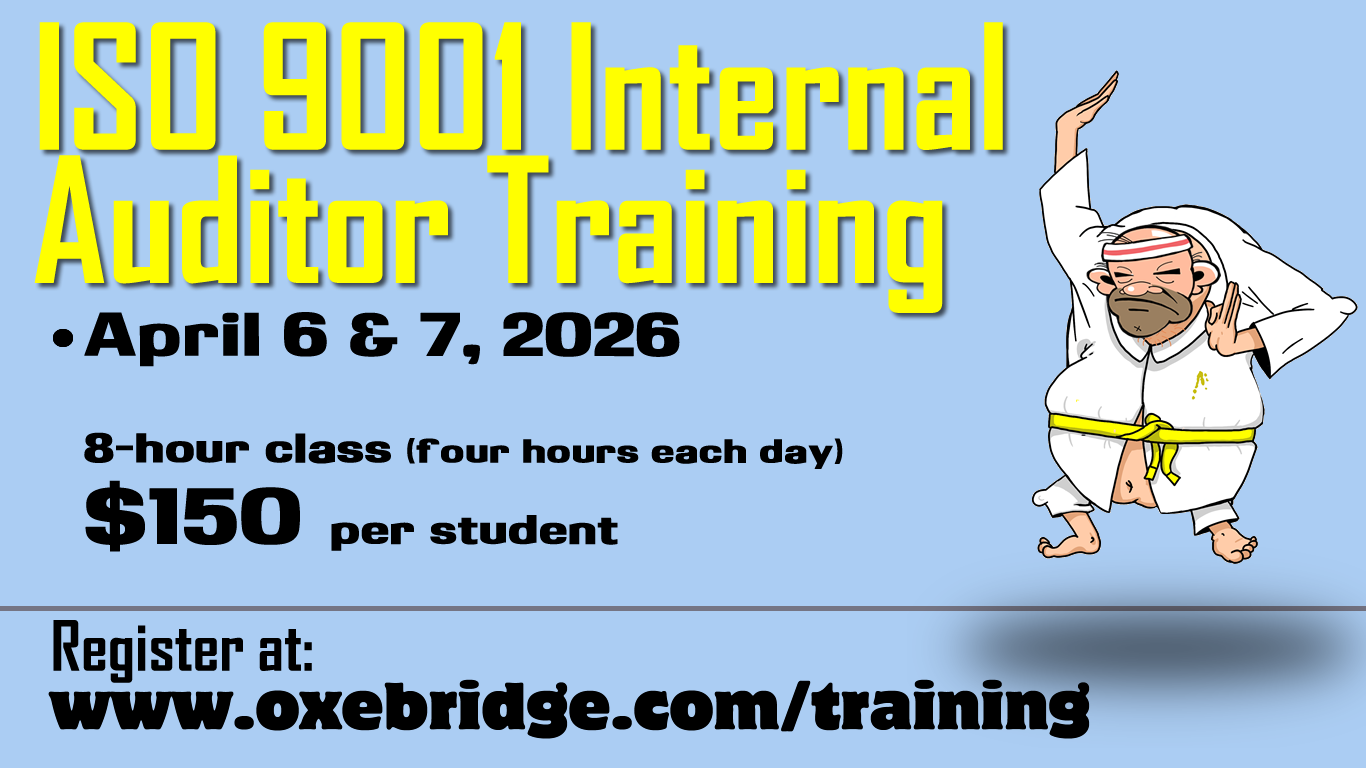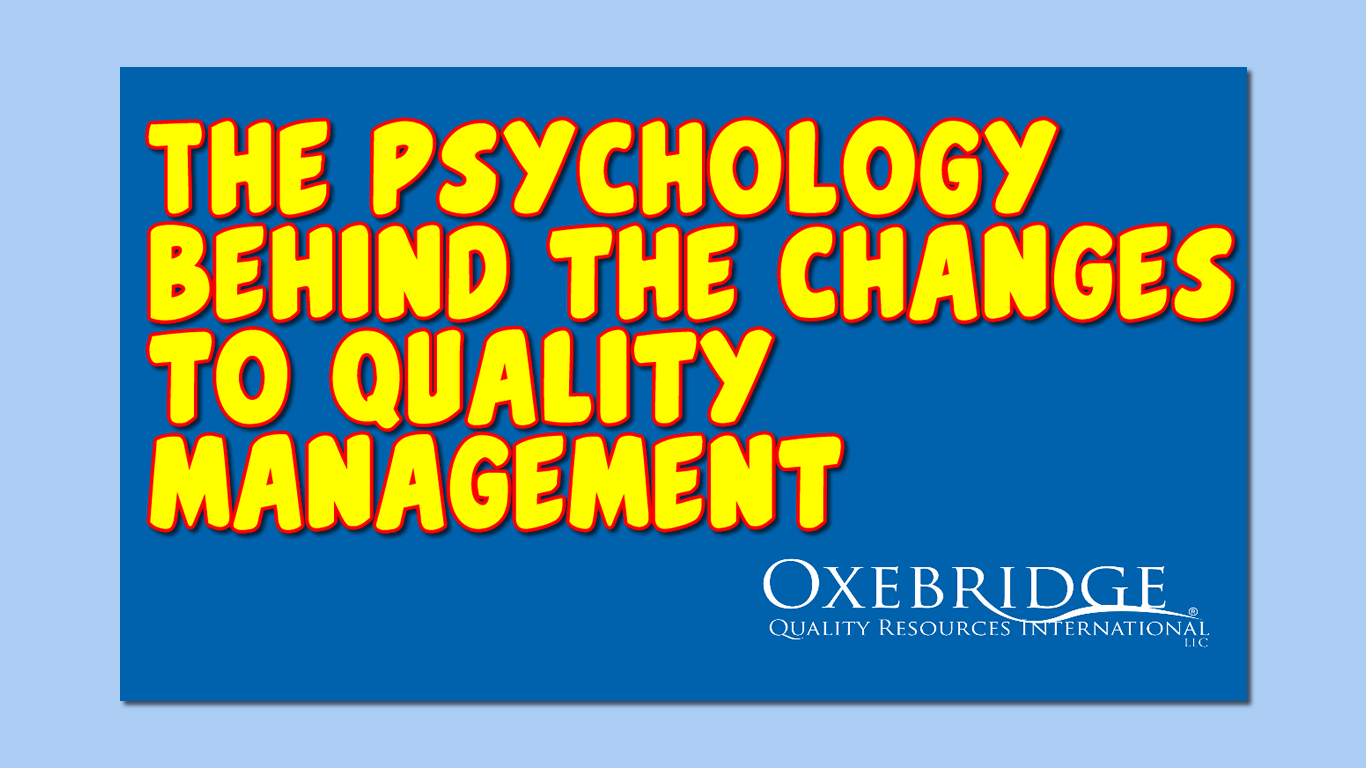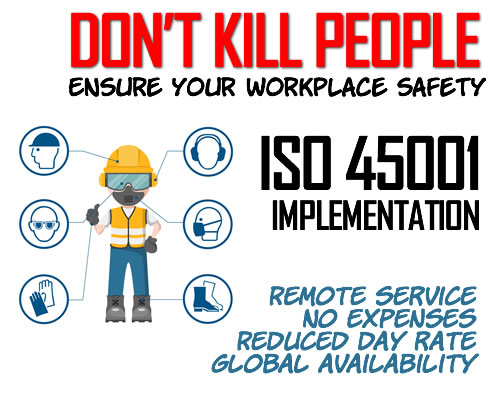The UK’s Chartered Quality Institute, the British version of the multilevel marketing scam called “ASQ” in the States, has weighed in with two reports aimed at pushing for an early revision of ISO 9001 despite the fact that the world already voted not to do so. This is because the auditor credentialing body IRCA is run by CQI, and stands to make an absolute fortune in “transition training” classes if ISO 9001 is revised. Both reports leave out that detail, however.
Let’s Pretend That Vote Never Happened
The first report is called the ISO 9001 Survey Report and is CQI’s attempt at yet another re-do of the official ISO vote which saw the idea of revising ISO 9001 shot down. CQI’s survey results in an even 50-50 split, with neither side of the debate winning out. But keep in mind, this is after CQI had used its considerable muscle to push the idea of an early revision to ISO 9001; meaning that even after doing so, all they could muster was 50%. They still couldn’t get a majority of people to agree with the idea.
Even after admitting the 50-50 split, CQI can’t help reveal its intentions. In the very first sentence, CQI admits the purpose of the report isn’t to present the data in a neutral, objective manner, but to “highlight the need for a revision of ISO 9001:2015” standard. With that in mind, all the text that follows can — and should — be dismissed as marketing spin. CQI isn’t being a fair broker here, but cults usually aren’t.
Here’s some of that ignorable text:
Based on the survey results and analysis, the CQI strongly recommends a revision of ISO 9001 to ensure its continued relevance, applicability, and value. The risks associated with not progressing a review at this time may result in the standard becoming less relevant to business and society. By revising ISO 9001, organisations of all types and sizes can thrive by providing exceptional value to customers, stakeholders, and society at large, embracing the necessary changes to meet the evolving needs of quality management.
There are two major flaws here. First, CQI never addresses the fact that it is advocating for a complete reversal of the fact that ISO standards are supposed to be based on consensus. As in, if people decide a standard is needed, ISO can create one; if people decide a standard is not needed, ISO isn’t supposed to make one anyway, forcing unwanted standards into the world’s economy and affecting global trade “just because.” But, again, cults are rarely concerned with consensus of their members — they are cultists, after all — so none of this is surprising.
The second flaw is CQI’s ludicrous ideas of what constitutes this earth-shattering “evolution” in quality management that necessitates ignoring consensus. CQI can rarely find actual words to put behind this, and instead just layers on more Bullshit Bingo phrases like “novel and emerging technologies and practices” and “modern technologies.” If those two things sound the same, they are, but CQI was so desperate to spike the results, it asked multiple questions about these same things, hoping for different answers.
In the end, the CQI survey doesn’t really conclude anything, but it features a lot of colored charts so that perusers will walk away wholly convinced they saw something.
Let’s Do A Study That Ignores Other Studies
The second report is called CQI SCC Revision Survey Report and Analysis, and it’s the usual post-game analysis where commentators try to spin whatever just happened into whatever they want people to think happened. Here, the CQI’s “Standards Coordination Committee” presents another 30 pages of marketing spin, again trying to make the case to ignore world consensus and revise ISO 9001 no matter what.
Here, the closest we get to anyone actually saying what “new” technologies have affected the Quality Management field so profoundly as to require a revision, we get more buzzwords:
Additionally, where organisations are exploiting new or disruptive technologies in novel ways, it will be necessary to provide assurance of those technologies. This is especially the case with regards autonomous or semi-autonomous systems, the assurance of Artificial Intelligence, etc.
Yes, there was no way we were going to get out of this without someone name-dropping AI, the go-to boogeyman for anyone talking about anything in 2023.
When discussing the question on “innovation,” the authors couldn’t even be bothered to come up with examples of what kinds of innovations might have had such an impact on Quality Management, and just referred to generic “ideas, concepts and practices.”
So in two entire documents, the CQI hangs its hat on the need to revise ISO 9001 to accommodate for ground-shaking things that have impacted Quality Management, but can’t actually name any.
In a hilarious lack of self-awareness, the authors then push for the revised standard to address “ethical and societal needs and expectations of all relevant interested parties.” Ignoring the fact that CQI is one of the most unethical organizations in our profession, it’s funny that they are arguing to address the needs of interested parties in a report that is advocating for violating the needs of interested parties. The “interested parties” already voted, and said not to revise ISO 9001!
Let’s Throw Everything and the Kitchen Sink Into That Standard
Another key takeaway from this survey, along with all the other attempts by ISO and TC 1767 to justify revising ISO 9001, is the complete lack of focus on what, exactly, should be added to the standard. Where the official ISO committee on “Future Concepts” dreamed up ideas like “agility“, “flexibility,” “integration” and “organizational culture,” the CQI gang borrows some of these but then goes off on its own fantasy trip. The CQI wants to add “systemic governance,” “assurance,” and “sustainability” and “hybrid, multisite, and decentralised workspaces.”
(An interesting side note: CQI doesn’t seem to know if “sustainability” and “organizational resilience” are the same thing, or different things.)
What is clear is that an entire generation of professionals has been raised to believe that ISO 9001 can be a dumping ground for each person’s pet project, since you can essentially phrase anything as having some impact or other on “quality.”
You can see that this is some form of widespread attention deficit disorder on display. Since the pandemic, remote work became a thing, so those involved are suddenly thinking about it. They want it addressed explicitly, even though there’s nothing in the ISO 9001 standard that needs changing to address it.
Then, some other folks are obsessed with technological changes that have occurred recently, and think the standard needs to be updated to address those. What that might look like is not clear, and neither the Future Concepts group nor the CQI gang has any clear vision for it. They just keep peppering their publications with technobabble and futuristic-sounding words they overheard somewhere (“AI!” “robots!” “Industry 4.0!”)
I think part of this is an age problem. Older folks largely dominate the decision-making process, and to the technological advances of 2023 make them feel like they are living in the age of the Jetsons. They are convinced the 1987 version of ISO 9001 wouldn’t have been able to address such changes (they’re wrong), and that something must be added to modernize ISO 9001. You know, guys, computers did exist in 1987 when ISO 9001 was created, right? We weren’t using smoke signals back then.
Let’s Pretend Six People Represent Everybody
This led me to wonder just who is this CQI Standards Coordination Committee. I assumed it was some other thing that people built to give Nigel Croft something to do, but apparently not.
According to its official website, the CQI SCC “is comprised of standards users, makers, thought leaders and management systems experts drawn from a variety of backgrounds and industries.” Well, that sounds fine, except the site then goes on to list the actual members — and there are only six of them. As in half a dozen.
The members are John Abson, John Bullivant, Richard Green, Zukiswa Raditladi, Simon Waite, and Kate Armitage, none of whom I ever heard of, and I suspect you haven’t either. All of them are Brits, except for Raditladi, who is from …. Botswana? Umm, okay. Sure, that’s not colonialist at all.
Those six individuals are supposed to comprise this amazing group of “standards users, makers, thought leaders and management systems experts drawn from a variety of backgrounds and industries.” You would think the CQI might have gotten a slightly bigger set of cultists “thought leaders,” but this was the best they could come up with.
So those six people are going to preach “ethics” and honoring the needs of interested parties, while advocating for the exact opposite. Clearly, CQI doesn’t have those little cards they hole-punch every time you buy something, so this is their way of showing a little appreciation for top customers. Give ’em a committee!
In the end, remember, IRCA will be forcing all its credentialed auditors to undergo expensive “transition training” classes on any revised ISO 9001 standard, so they — and their training partners — will be making mad bank if the revision goes through.
Christopher Paris is the founder and VP Operations of Oxebridge. He has over 35 years’ experience implementing ISO 9001 and AS9100 systems, and helps establish certification and accreditation bodies with the ISO 17000 series. He is a vocal advocate for the development and use of standards from the point of view of actual users. He is the writer and artist of THE AUDITOR comic strip, and is currently writing the DR. CUBA pulp novel series. Visit www.drcuba.world








